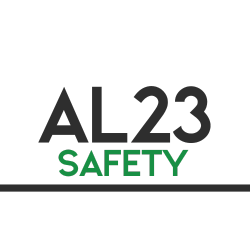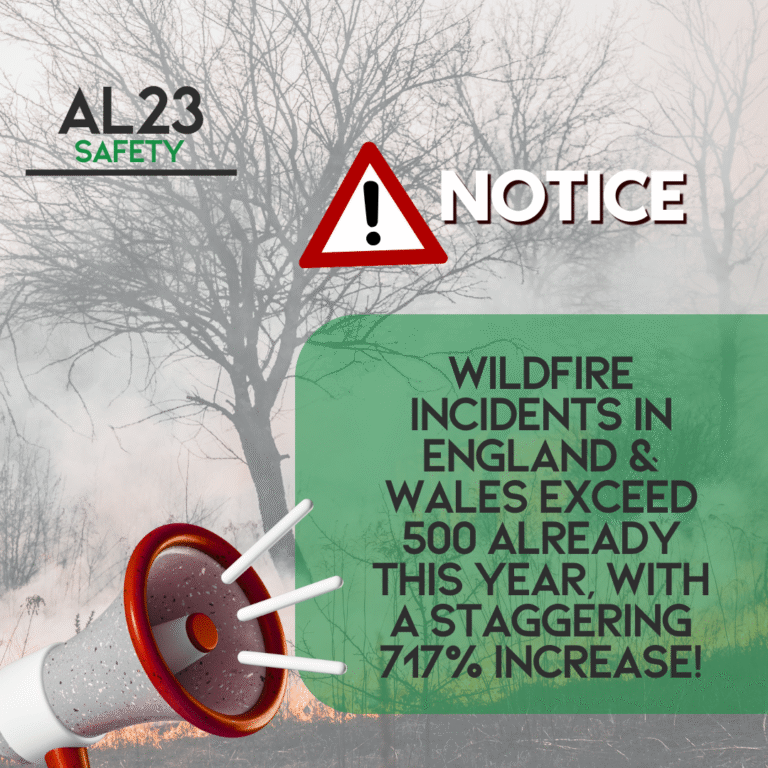Wildfire safety has become increasingly critical as summer temperatures soar across the UK. With incidents in England and Wales already surpassing 500 this year, the National Fire Chiefs Council (NFCC) reports a staggering 717% increase in wildfires compared to the same period last year. This alarming trend demands immediate attention to wildfire prevention measures and community preparedness.
Understanding the Wildfire Threat
The statistics surrounding wildfire paint a concerning picture for UK communities. Most wildfires stem from human activity, whether accidental or deliberate, making public education on wildfire prevention absolutely essential. These fires don’t merely threaten individual properties; they devastate local wildlife, destroy ecosystems, and compound the effects of climate change.
When fire services become overwhelmed responding to wildfire incidents, their capacity to handle other emergencies becomes severely compromised. This cascading effect highlights why proactive wildfire safety measures are crucial for protecting entire communities.
Critical Wildfire Prevention Strategies
1. Eliminate Disposable Barbecue Risks
The NFCC strongly advises against using disposable barbecues in natural areas. These pose significant wildfire safety risks, particularly during dry conditions. Instead, opt for designated barbecue areas with proper safety equipment nearby.
2. Responsible Cigarette Disposal
Never discard cigarettes in natural environments. Properly extinguish cigarettes in designated receptacles to prevent accidental wildfire ignition. This simple wildfire prevention measure can save thousands of acres from destruction.
3. Respect Local Guidelines
Local authorities issue specific guidance based on current wildfire conditions. Always check and follow these recommendations before venturing into natural areas, particularly during peak summer months.
Summer Fire Safety Beyond Wildfires
Water Safety Considerations
During peak temperatures, water-related incidents increase alongside wildfire risks. The NFCC emphasises supervising children around water bodies and understanding cold water shock risks. Even during hot weather, water temperatures can cause dangerous physiological responses.
Emergency Preparedness Planning
Effective wildfire emergency preparedness involves creating evacuation plans, identifying safe zones, and maintaining emergency supply kits. Communities should establish clear communication channels for wildfire alerts and evacuation procedures.
The Role of Businesses in Wildfire Prevention
Organisations operating in wildfire-prone areas must implement comprehensive wildfire protocols. This includes conducting regular risk assessments, training employees on emergency procedures, and maintaining defensible spaces around facilities.
Risk Assessment Implementation
Professional wildfire assessments help identify vulnerabilities and develop targeted mitigation strategies. These evaluations should consider seasonal variations, local weather patterns, and proximity to natural vegetation.
Employee Training Programmes
Staff education on wildfire prevention and emergency response ensures everyone understands their role in maintaining safety. Regular drills and updates keep wildfire protocols fresh in employees’ minds.
Community Collaboration for Enhanced Safety
Successful wildfire prevention requires coordinated community effort. Neighbourhood watch programmes can monitor for early signs of fire danger, whilst local businesses can support emergency services through resource sharing and communication networks.
Building Resilient Communities
Resilient communities invest in wildfire infrastructure, including early warning systems, firebreaks, and emergency communication networks. These investments protect lives, property, and local ecosystems.
Professional Safety Support
At AL23 Safety, we understand the unique challenges communities face during wildfire season. Our expert guidance helps organisations navigate health and safety compliance complexities whilst implementing effective wildfire prevention strategies.
We provide tailored solutions including comprehensive risk assessments, employee training programmes, and emergency preparedness planning. Our approach ensures businesses and individuals can confidently address wildfire challenges.
Taking Action Today
The increasing wildfire threat demands immediate action from individuals, businesses, and communities. By implementing proper wildfire measures, respecting environmental guidelines, and supporting emergency services, we can collectively reduce wildfire risks.
Don’t wait until fire threatens your community. Start implementing these wildfire prevention strategies today, and consider professional safety consultation to ensure comprehensive protection.
Together, we can build safer, more resilient communities prepared for the challenges of wildfire season. Contact AL23 Safety to learn how our expertise can strengthen your organisation’s wildfire emergency preparedness and overall safety culture.



